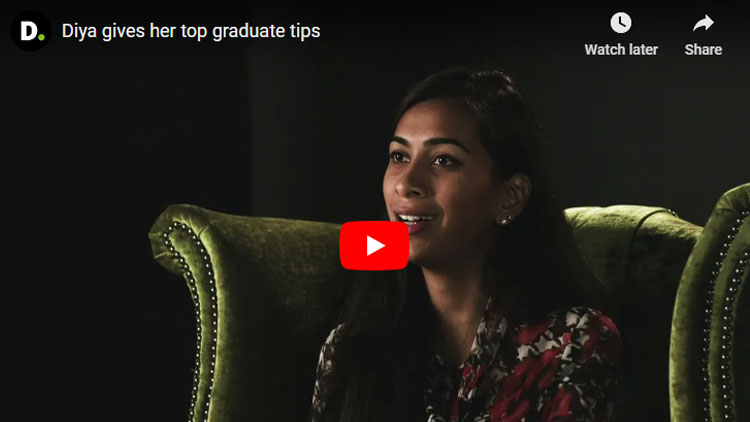Guide to Deloitte's Assessment Process and Graduate Schemes
Page contents:
Jump to:About Deloitte's Selection Process
As one of the 'Big Four' accountancy firms in the world, the competition for Deloitte's graduate schemes and jobs is very high. This guide is curated by test experts and other fellow applicants that have been through the process so you can learn from their experiences.

Deloitte use the following tests in their selection process:
- Capp Verbal reasoning test
- Capp Numerical reasoning test
Deloitte test difficulty based on feedback from our members
| Assessment section | Recommended Practice Pack |
|---|---|
Deloitte Numerical test | Numerical Test Pack
|
Deloitte Verbal test | Verbal Test Pack
|
Deloitte Personality test | Personality Test Pack
|
So you want a job at Deloitte? You're not alone. Deloitte are one of the most popular employers with thousands of applicants each year for their various accounting roles. With jobs available across areas such as Audit, IT, Finance, Tax, Legal and others, there are plenty of opportunities and graduate roles available. However, it's not easy getting through the application process, but with the right advice and practise you can alleviate some of those fears and be better prepared to take on the challenge.
Deloitte's selection process is extremely fair and offers a level playing field for all applicants, however there is a minimum qualification requirement you must meet to be considered. Deloitte say you must be on track on GCSE Maths grade 6* (B) and English grade 4 (C) for all programmes, and a 2:1 for Deloitte's graduate programmes. Hopefully you meet those requirements and we can move onto the main application process advice.
The biggest piece of advice we can offer is really quite simple and applies to the entire process: give it everything you’ve got. Enthusiasm and commitment count for a great deal here at Deloitte. And this is your chance to show us yours.- Deloitte
The selection process may vary depending on what role you're applying for but usually it will involve an online application, immersive online assessment, job simulation, and final stage assessment (assessment centre).
We'll break down each of these section below, offering our advice and advice from fellow job-seekers that have been through these application processes.
Deloitte Application Process Stages
Online Application
Irrespective of the role you're applying for or the region, you will always have to start off with an online application submission. These are fairly similar across all companies and will simply ask for personal details, education, qualifications and maybe a couple questions about your motivations. The questions will focus on your reasons for applying for this role or why you wish to work for Deloitte. These answers will still be looked at, so don't submit a weak answer and risk your application being rejected.
Game-based Assessment
After you've submitted your application you may be asked to complete a game-based assessment as part of their initial screening process - one of their games is called 'Cosmic Cadet' (by Arctic Shores). These game-based assessments shouldn't be too difficult and will analyse various aspects of your personality such as how risk-adverse you are and how you think through problems.
Immersive Online Assessment
Once you're initial application has been successful, you will start the hard part - the assessments!
Deloitte's assessment tests are known as the Immersive Online Assessment. The test(s) you face may vary but will most commonly be a combination of a situational judgement test (situational strengths), numerical reasoning, critical thinking, and/or verbal reasoning test. You may face a 'blended assessment' which will be one test with various test-types within, we cover all of this below.
The tests you take could depend on the location and role, so if you're applying for a role in Deloitte's Cardiff office for consultancy, or in Deloitte's London office for audit the tests you face will potentially be different.
In the situational strengths test you will be asked questions on possible work scenarios and have to answer how you would respond. This test is normally 20-ish questions and there is no time limit. The questions will be very specific to Deloitte and the typical situations you may find yourself in as a future employee. It's important to understand the core competencies of Deloitte to understand what values and attitudes they want their employees to possess. Try to be honest, but also learn how to differientate between what is considered an appropriate response and what isn't. You can practise our situational judgement tests to become familiar with the format and help you understand what would be the most appropriate and least appropriate responses and, most importantly, why they are.
The verbal reasoning test could be an assessment you have to take on its own, or it will be part of the 'blended assessment' if that's what you've been asked to take. The verbal reasoning test is a capp-style verbal reasoning test and will assess various verbal skills such as evaluating styles of communication, identifying correct missing words, corrections and ranking different statements. You can use our free cappfinity-style verbal test to get a taste of what is expected.
The numerical reasoning test may be formatted slightly differently to numerical tests you are used to. The test publisher that is used is Cappfinity (Cappfinity). These numerical tests have different styles of numerical questions in each test. You will be required to pick the correct answer from multiple options (standard question format) but also to rank answer options (e.g rank which branch made the largest profits in the first quarter of 2019?) and to type out your answer with no answer options to choose from.
Cappfinity-style numerical tests take some getting used to and it's important that adjustment period is not during your actual assessment as you won't be able to showcase the best of your ability. You can try out our free Capp-numerical test for a preview of what to expect - if you need more practise then all of these test types and more are included in our bundle pack.
The numerical sequence test is an increasingly popular test for potential candidates. You will be required to pick complete the sequence of numbers that work in numerical ways. For example, 2-4-6-8-10, is a sequence where each number has an addition of 2 to the previous number. These can be quite tricky at first, but once you know what to look out for, they shouldn't bee too challenging.
The blended online assessment will involve a combination of test types. One AssessmentDay user explains his experience with Deloitte's blended online assessment:
The test is formatted as a 5 page document on a single topic. There are various tabs with different graphs, charts, figures and facts. There's lots of questions and you're asked to use all the relevant facts and figures that are given to you. It's a combination of tests: numerical, critical, verbal and there's no time limit which is good, but your time is probably recorded. Assessmentday service was useful, offered all the practise needed for assessment. My only tip is to, and it's an obvious one, read the question. There are multiple steps to a lot of the questions, where you need to find information in different areas. Get get caught out, make sure you read the question and understand what's being asked.
- Consultancy Strategy Graduate Scheme Applicant, 2020
Job Simulation
Once you've managed to pass the online assessments, you move onto the next stage which will be 'Job Simulation'.
Job simulation is a combination of a video interview and light assessment. One applicant describes it as:
Job simulation was a mixture of: video interview questions where you have a few minutes to prepare and then press record and submit your answer; there were questions where you would just have type your answer and also multiple choice questions. I had a pen and paper with me which came in very useful - but make sure you look at the camera and you aren't reading from anything. If you're calm and don't stress too much then you should be able to answer it all ok.
- Audit Graduate Scheme Applicant, 2019
You are required to craft emails, record video responses to scenarios and solve some basic numerical problems based on client information.
We would recommend becoming familiar with looking at a camera and fluently speaking for periods of time, as it can be alien to some and feel uncomfortable. Don't stress, if you've made it this far, then have confidence in yourself, you can handle this.
Final Stage Assessment
Upon passing the psychometric tests, you will then be asked to take part in the final stage assessment which is an assessment centre. This final stage assessment, along with other candidates, you will be interviewed by a senior member of Deloitte and you will be asked to complete some exercises and also give a presentation.
Everyone will be nervous, even if they don't seem it, so just relax and try your best. Speak calmly, confidently and at a volume that everyone can hear. This is when you can showcase your personality - most of these stages have been impersonal, where Deloitte have been assessing your cognitive ability, but now you can show them who you really are.
Dress smart, be prepared, be confident and just enjoy the experience.
The following video features two Deloitte Graduates pass on their tips:

Join those now working at top companies
Don't settle for 'try again next year'. Let us help you pass employer tests first time.
Try now for free
If you would like to share your Deloitte experience with us and help others, then contact us and email in!
Answered questions
Are these tests suitable for Deloitte?
Yes. Deloitte use TalentLens tests to assess its candidates. The practice tests we provide have been designed to mimic the these test's style to create an environment similar to the real assessment. This provides you with confidence that the questions you practice with us now are an accurate reflection of the real assessment.
How difficult are your tests?
The same difficulty as real tests. Generally real employer selection tests don't differ that much in terms of difficulty which is why they compare your score against norm groups. Our practice tests are pitched roughly at graduate level, but this means they are actually suitable for preparing for all levels of job: entry; apprentice; graduate; senior; director.
Are they compatible with my Mac / Tablet / Phone?
Yes, and PC, and Linux and smartphone and Android and...everything. Our practice tests will run on all systems and they are responsive so they will work well on tablets and smartphones too!
How many times can I take the tests?
Unlimited. You can take our practice tests as many times as you like; there is no limit. But to be honest, after taking the same test a few times you start to remember the answers, so that’s why we have lots of tests.
